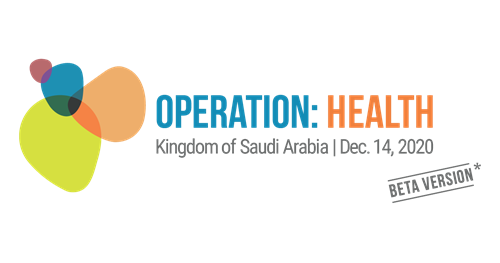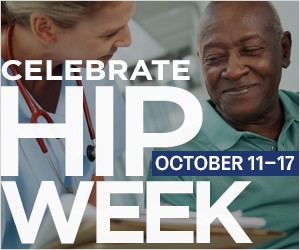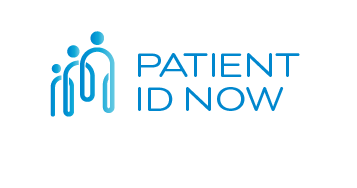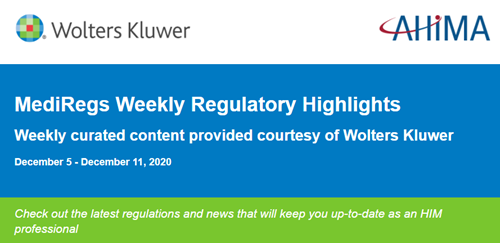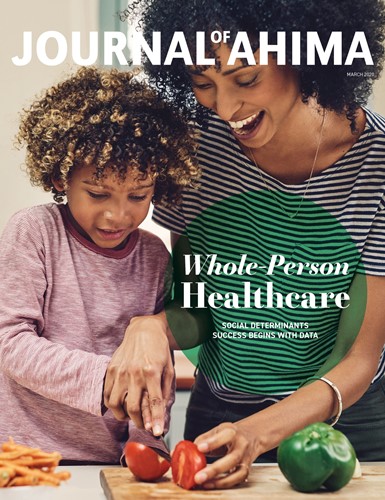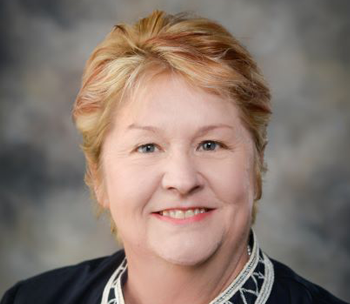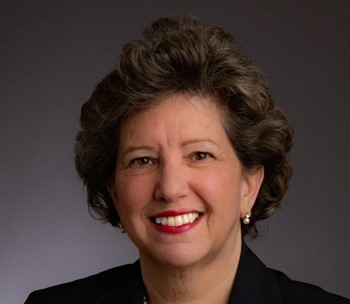AHIMA Progress Report
As the leading voice of health information, AHIMA embraces the new opportunities for growth that emerge within our profession. Explore this page to learn about our accomplishments. Thank you AHIMA members for all you do to keep health information human.
We began sharing information with members about Access, a modern, robust community platform where you can connect with other industry professionals. Access will be available in early 2021.
We launched AHIMA Student Academy, a webinar series designed to help members put their best foot forward and consistently reach higher amid an evolving healthcare ecosystem. Course titles include Leverage Your Personal Brand In A Competitive Job Market; Mindfulness: The Ultimate Behavior for Success; and more.
The Journal of AHIMA published a member resource detailing compliance deadlines for the Cures Act Interim Final Rule. This resource is especially helpful after ONC announced it was delaying the compliance deadline for its Information Blocking final rule.
Patient ID Now hosted Patient ID Day on November 18 and coalition members contacted the offices of every US senator as the group continues to advocate for a nationwide strategy to address patient identification.
At AHIMA20, Candlelit Therapy, a virtual mental health clinic, won the second annual Pitch Competition. The competition was a joint effort between AHIMA and the Chicago-based health technology incubator MATTER.
As patient misidentification continues to jeopardize patient safety, limit and delay data sharing and interoperability, and adversely affect data quality, we asked health information professionals to sign a Naming Policy Pledge and commit to advocating for the importance of naming policies in healthcare organizations. More than 1,000 people signed the pledge.
Our Board of Directors approved four policy statements on social determinants of health; cybersecurity and information security; individual access to health information; and public health.
Patient ID Now worked with U.S. Reps. Bill Foster (D-IL) and Mike Kelly (R-PA) to publish an op-ed in The Hill about patient identification during COVID-19. “Each year thousands of Americans lose their lives through administrative errors, including patient misidentification, but right now the U.S. lacks a national strategy to address this dire problem,” they wrote.
We reiterated our commitment to consumer engagement and patients’ rights, saying we believe consumers are empowered when they are engaged with the knowledge and understanding of their health status and treatment. Nearly 500 healthcare professionals signed a pledge saying they agree.
Our Board of Directors approved three policy statements on health information held by HIPAA noncovered entities; patient identification; and integrating clinical and administrative health data.
We released a patient matching white paper titled A Realistic Approach to Achieving a 1% Duplicate Record Error Rate. The paper is downloaded hundreds of times and was especially critical during the COVID-19 pandemic, which further illuminated the undeniable and overwhelming need for accurate, available, and trustworthy health information.
We hosted a webinar with the Centers for Disease Control and Prevention titled Implementing Electronic Case Reporting for COVID-19. A health scientist from the CDC presented information on how electronic case reporting (eCR) can help healthcare organizations fulfill their mandatory public health reporting requirements for COVID-19 while reducing the administrative burden on physicians and other hospital staff.
We began offering the Health Data Analysis Course Series, which includes six courses designed to address health information and healthcare professionals' learning needs regarding collecting and analyzing data to make strategic administrative, financial, and patient-related decisions. Titles include Improving HIM Clinical Quality Using Data Validation, Harvesting Data from External Sources for HIM Professionals, and more.
The US House of Representatives voted to remove the long-standing ban around patient identification in the fiscal year 2021 Labor, Health and Human Services and Related Agencies appropriations bills. We believe the ban stifles innovation around patient identification and jeopardizes patient safety.
We debuted our Professional Enhancement Campaign at the AHIMA CSA Leadership Symposium and began efforts to share it with all members. “This campaign teaches us new ways to talk about the profession so that others will understand the importance and value of our work and our value as professionals within the healthcare ecosystem,” wrote AHIMA President Ginna Evans, MBA, RHIA, CPC, CRC, FAHIMA.
Ginna Evans, MBA, RHIA, CPC, CRC, FAHIMA, our 2020 president/chair, and our CEO Wylecia Wiggs Harris, PhD, CAE, published a statement on racism and public health following the death of George Floyd. “Once the initial shock has passed, as a country and world we need a long-term strategy to address, with empathy and compassion, the social inequities that exist—once and for all,” they wrote. “We recognize the historical inequities that perpetuate systems of inequality, including their impact on health and healthcare.”
The Journal of AHIMA continued its digital transformation, becoming a fully digital publication. Digital publishing allows for content and engagement beyond what is possible on the printed page. The Journal remains committed to publishing and sharing new ideas around health information.
Our Policy and Government Affairs Team and AHIMA member Alison Nicklas, MJ, RHIA, CHPC, CCS, presented to the ONC Intersection of Clinical and Administrative Data Task Force, offering an operational perspective on the trigger events for sharing clinical data with payers.
AHIMA, the AHIMA Foundation, and TrustHCS conducted a short survey examining how the COVID-19 pandemic is affecting the industry. Its findings informed how AHIMA should provide career and education resources, while providing the advocacy team with valuable insights.
We worked with the AHIMA Foundation to promote the Foundation’s HIRO Fund in SmartBrief and other newsletters. The HIRO Fund assists AHIMA members living or working in FEMA-designated COVID-19 disaster areas, helping them build greater economic security for themselves and their families.
We developed two new COVID-19 CDI query templates to help CDI professionals ensure the integrity and quality of a patient’s health record. With data being such an important element in the fight against COVID-19, the new templates provided a clear guideline of what critical data needs to be obtained to accurately document for the virus. Quest Diagnostics later announced they will use the templates.
We launched several free webinars, including Inpatient COVID-19 Coding and CDI Training: Cross-train Your Outpatient Coder and Best Practices for Health Record Management in COVID-19 to assist health information professionals stay up to date during the pandemic. A telehealth resource for patients was also published on the Journal of AHIMA website.
Our advocacy team sends a patient matching and identification survey to more than 25,000 health information professionals. The survey was sent at the request of ONC and responses gave them valuable information about the on-the-ground realities of patient matching and identification.
As the United States became increasingly impacted by the COVID-19 pandemic, we produced dozens of resources for members and created AHIMA.org/COVID19 as a one-stop-shop for the latest information.
Our advocacy team was pleased Congress included the Protecting Jessica Grubb’s Legacy Act in the Coronavirus Aid, Relief, and Economic Security (CARES) Act. Its passage made it easier to share addiction records for the purposes of treatment, payment, and healthcare operations, while allowing patients to retain control of their health information.
We released a statement after ONC finalized its rule on information blocking. "We look forward to reviewing the final rule in greater detail. We support the intent of the Cures Act to eradicate practices that unreasonably limit the access, exchange and use of electronic health," said AHIMA CEO Wylecia Wiggs Harris, PhD, CAE. "However, given that the rule introduces a number of new definitions and terminologies and the significant economic impact of this rule, we are disappointed that ONC did not heed stakeholders' calls to issue an interim final rule."
Attendees of our 2020 Virtual Hill Day webinar learned how they can advocate on behalf of the profession, gained an understanding of public policy issues, and learned how to contact their elected officials.
Our Career Assist website was revamped to give both job seekers and employers a place to find the right opportunities and candidates for a variety of health information careers.
The Journal of AHIMA launched a redesigned website with a clean and contemporary format that makes it easier to access information.
Our 2020 Advocacy Priorities were released. They are focused a number of priorities including on enhancing consumers’ electronic, timely, and seamless access to their health information.
May 20, 2020
The following questions and answers were jointly developed and approved by the American Hospital Association’s Central Office on ICD-10-CM/PCS coding for COVID-19 and AHIMA. Coding professionals with comments and questions...
![]()
August 4 , 2009
Determining appropriate release of a deceased patient’s medical records can be complex. HIPAA, sometimes blamed for denied requests, is rarely cause for a roadblock, however.
![]()
